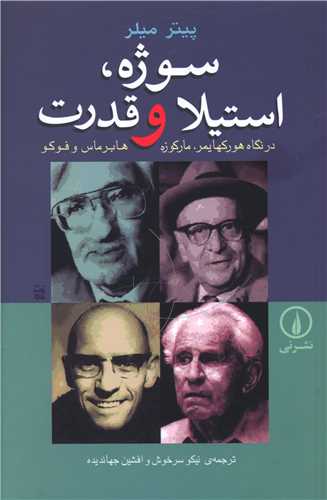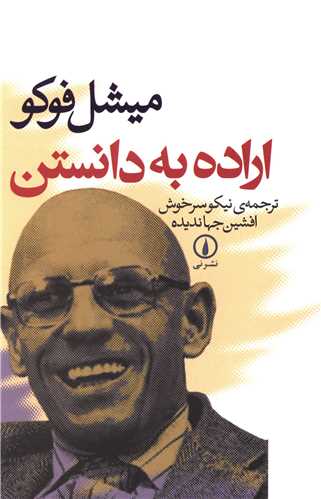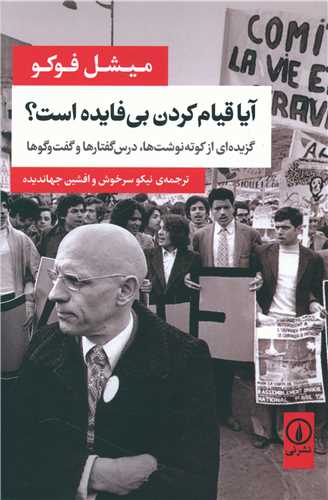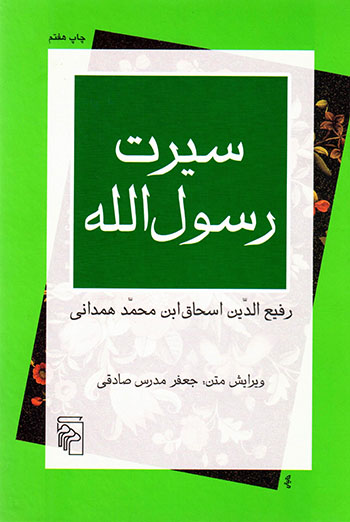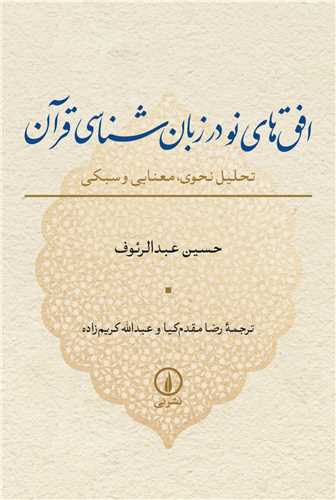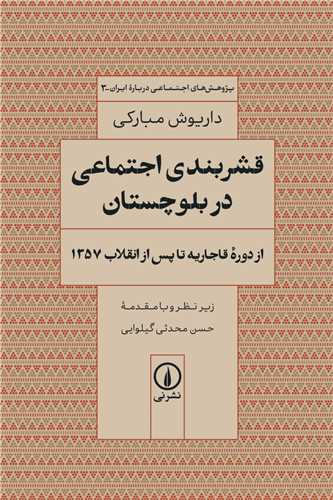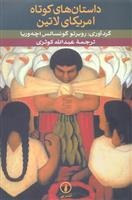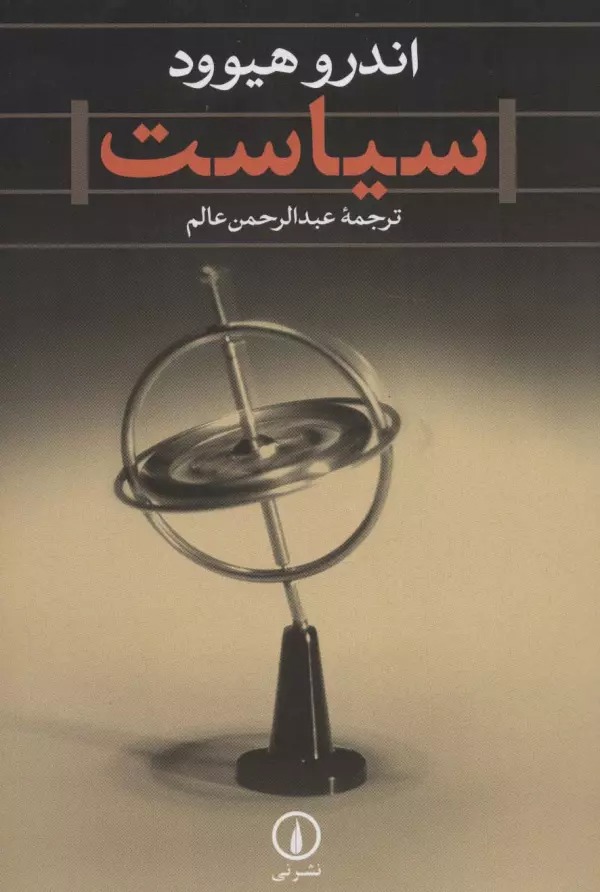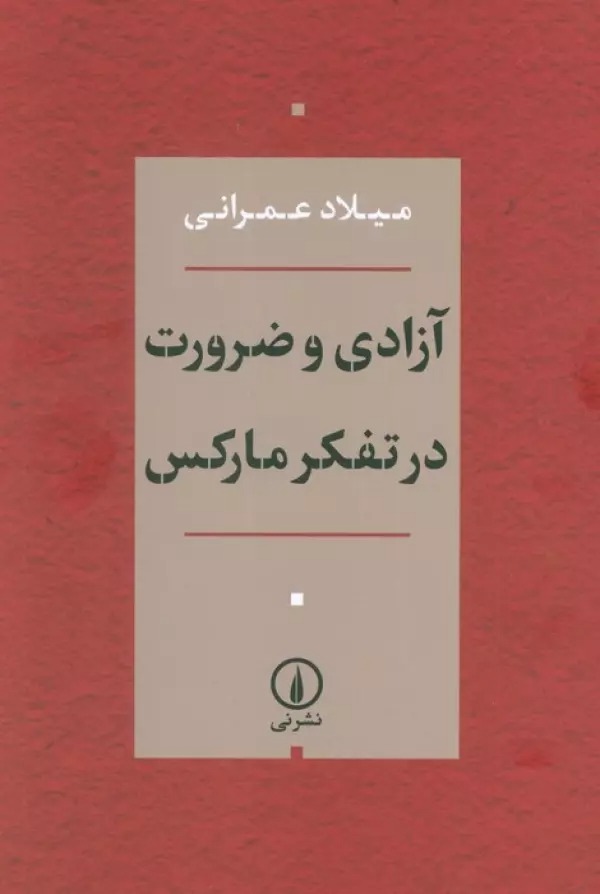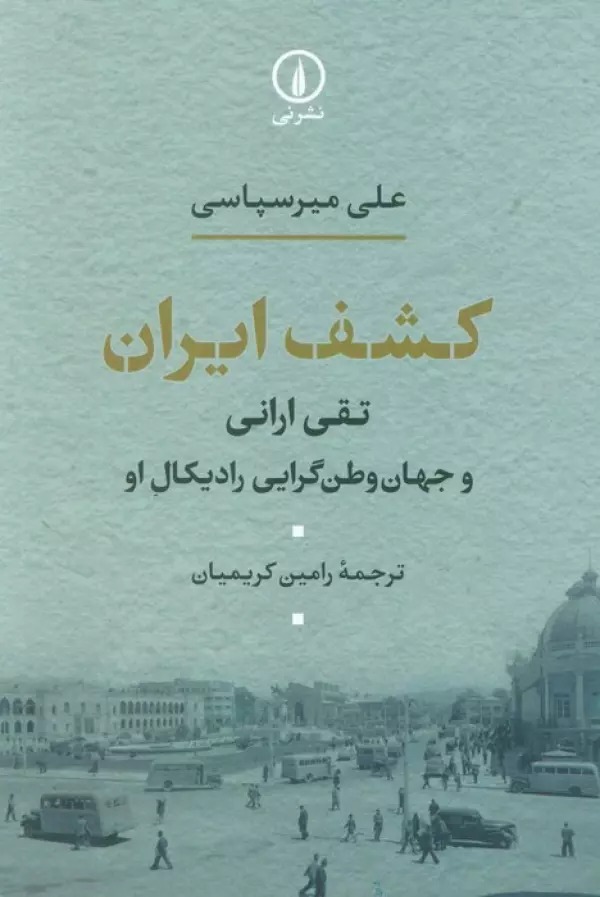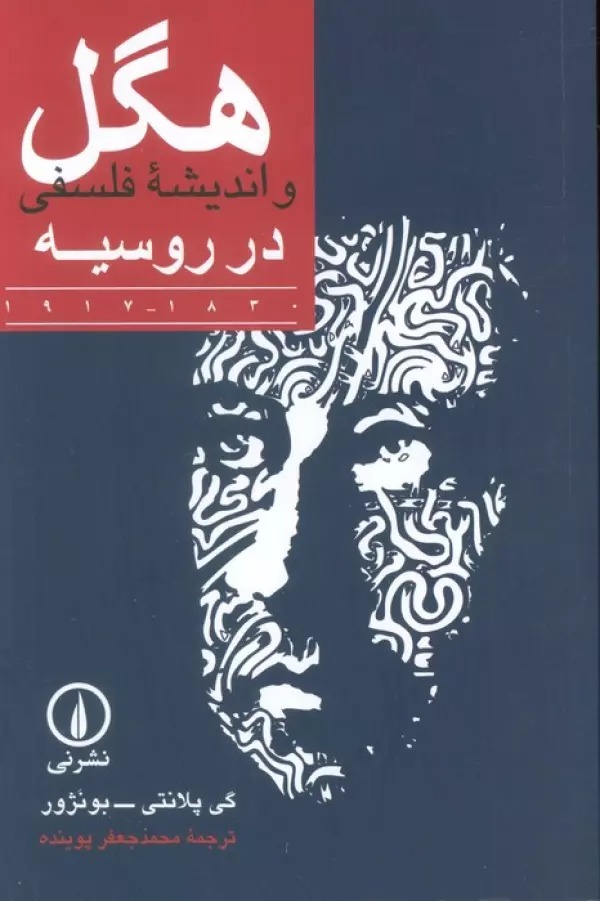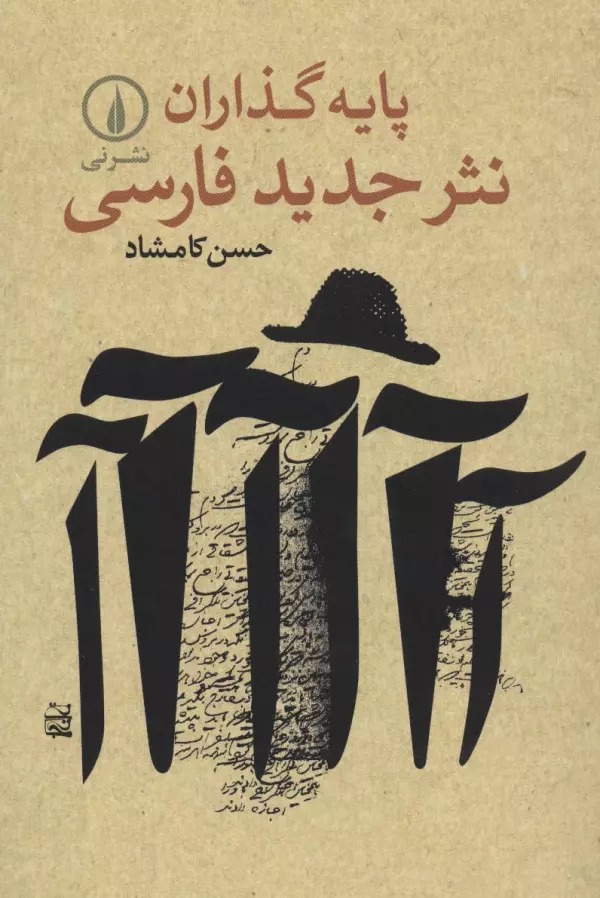Suzhah, Istila va Qudrat: Persian 1401
سوژه، استیلا و قدرت
17.31 $
Share
Wishlist
Original Title:
Domination and Power
ISBN:
9789643127015
Translator:
Nīkū Sarkhush
Publisher:
Nashr-i niy
Age Group:
Adult
Pages:
333
Weight:
378 g
Dimensions:
14 x 21 x 3 cm
Book Cover:
Paperback
He was first published in 1987. Our understanding of the nature of power in Western societies is undergoing a major reassessment. The significance of this reassessment emerges forcefully through comparing the writings of the principal exponents of Critical Theory - Max Horkheimer, Herbert Marcuse, and Jorgen Habermas - with those of Michel Foucault. Peter Miller suggests that these two traditions embody fundamentally distinct philosophical and sociological principles. He grounds his analysis on domination (Critical Theory) and power (Foucault).
Miller identifies the notion of subjectivity as central to a differentiation of the respective approaches of Critical Theory and Foucault. For Critical Theory, it is the repression of subjectivity that provides the evidence of domination and the rationale for its critique, while for Foucault subjectivity in Western societies is fabricated through power and linked to the deployment of specific knowledge. Miller shows that despite the achievements of Critical Theory in bringing to light the repressive nature of advanced industrial societies, its thinking is inadequate as a basis for future analysis and critique. He argues that Foucault's genealogy of the modern subject, which highlights the role of the human sciences in its fabrication, is a more fruitful basis for charting and investigating the mode of operation of contemporary forms of power.
The book includes a survey of all published works by Foucault, up to the time of his death in 1984, and commentaries on the writings of Max Horkheimer, Herbert Marcuse, and Jorgen Habermas.
more
سوژه،استیلا و قدرت در نگاه هورکهایمر،مارکوزه،هابرماس و فوکو به بررسی مقایسه ای این چهار فیلسوف در مورد سوبژکتیویته و رابطه ی آن با قدرت می پردازد.از یک سو،قدرت مقوله ای تلقی می شود که صرفا از طریق سرکوب سوبژکتیویته عمل می کند و قدرت نهایتا سوبژکتیویته را خرد و نابود می کند و در نتیجه،رهایی و آزادی سوژه به معنای فروپاشی و محو قدرت است.چنین مفهومی از قدرت با انگاره ی استیلا تعریف می شود.در مقابل،فوکو تصویر کاملا متفاوتی از قدرت ارائه می دهد که نه با سرکوب سوبژکتیویته،بلکه با ارتقاء، پرورش و بارور کردن آن عمل می کند.پیتر میلر(استاد فلسفه ی سیاسی)در بخش اول کتاب،آثار سه اندیشمند بزرگ مکتب فرانکفورت را در این باره بررسی می کند و در بخش دوم کتاب به آثار مهم فوکو می پردازد.
more

